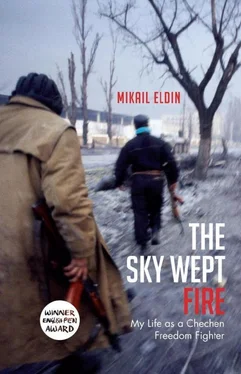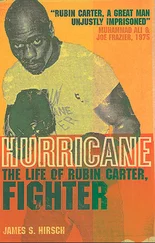Sometimes, amid a rare lull in the fighting, it was even possible to wash, with water heated on a small kerosene stove. We obtained water for basic hygiene and drinking from melted snow. Even after boiling it five times, the smell was revolting and it was undrinkable, but somehow we drank it. And the effect of washing with it was more psychological than sanitary. You could comfort yourself that the human urge for cleanliness had not died in you. It meant you were still of lucid mind, you had not become an animal. I remember I had a snow-white scarf from my life before the war, now so distant and unreal; it was the only white item in my wardrobe. I’d never managed to change out of what I’d been wearing when the assault began. And I became unhealthily obsessed with preserving the whiteness of this scarf. No doubt I had gone a bit barmy in these extreme conditions. Rationally I understood that it couldn’t be done in a city where even the snow fell grimy with the soot of gunpowder residue, but for me the cleanliness of at least one piece of clothing served as proof I was still of sound mind. A similarly sacred meaning was given to the poor imitation – for you could never actually wash off that smell of soot – of bathing in the frost.
Over the first few days of the assault I listened intently to the news on my portable radio. But observing the huge discrepancy between the reports on the news and actual events in Grozny, I stopped listening. And whenever they broadcast classical music and their regular programmes, it sounded like voices beamed from another planet. Everything that existed beyond the boundaries of this small piece of land seemed like an inane television show where people merely acted out their roles till the day they dropped dead. Real life existed only on this patch of the planet, because here you were vividly aware of each second of life granted to you by fate. Here, each breath might be your last and for that reason each breath was bursting with life. Here, each moment lived was filled with the most profound sense of purpose. Life here was real.
After a month of bitter fighting, at the end of January 1995, it was time for the Chechen defenders to retreat from the city. Yet it was the Russian Army, with General Grachev at the helm, that had conclusively lost the battle for Grozny, just as Marshal Zhukov in his time had lost the battle of Berlin. The victor on the battlefield is not the side that wins control of a particular territory (which sooner or later will fall to the numerical majority, as happened in Grozny), but the side that inflicts the greatest damage on their opponent while sustaining the fewest losses themselves. In the battle for Grozny, the losses on the Russian side simply bore no comparison with those on the Chechen side. And perhaps the only people not to understand this (or who made a pretence of not understanding) were the Russian soldiers hoisting their flag over the ruins of the Presidential Palace and taking their pictures against its backdrop; the Russian President and the Minister of Defence handing out decorations to those men who’d survived the bloodbath; and the team of craven officials whose howls of delight filled the chambers of the Kremlin. The entire civilized world shuddered upon seeing the price Russia had paid, and what’s more without even bargaining, for a city that had little strategic value in a war without front lines.
I slept right through the Chechen fighters’ withdrawal from the city. Along with three resistance fighters with whom I wasn’t acquainted, I was resting in some cellar when we awoke to the thud of boots and the voices of Russian soldiers entering the yard looking for loot. Our cellar had been cleverly camouflaged: it was under a lean-to and the top of the trapdoor had been concreted over, as had the ground below the lean-to. Unless you were inspecting the area closely, you would have been hard pressed to notice it. The soldiers who’d come to steal just gave the place a cursory scan, and that alone is the reason we weren’t discovered. Of course, if it had been not the regular infantry but ‘the Dogs’, a special squad from the Interior Ministry, out on a ‘cleansing operation’, they would have found us fast and killed us just as quickly. But at the time we didn’t even know that ‘the Dogs’ existed, and so we decided to stay put until dusk. Having decided to flee the occupied city, we emerged from the cellar. We were kitted out with just enough weaponry for an honourable death. The militiamen had assault rifles with a small supply of bullets, an anti-tank hand grenade, a single-use RPG-18 ‘Mukha’ type anti-tank rocket launcher and two anti-personnel hand grenades each. As a civilian in a peaceful profession, I was armed more simply: with a hunting knife and an antipersonnel grenade – to blow myself up should the need arise, but the need to perform this heroic deed did not arise. The idea of surrendering didn’t enter our heads, and had we been discovered, the natural outcome would have been death. There had been no snow for a long time, and every few minutes the entire city would be lit up by bright flashes, from the masses of illumination rounds fired by terrified Russian soldiers. There was a continuous rumbling overhead, and from time to time the planes too would shower the city with parachute flares. There were so many of these flares, on top of the illumination rounds from the ground, that the greater part of the city remained well lit. After their chastening experience of enemy night attacks, the Russian Army was feeling deeply unnerved, each moment expecting to hear the Chechen war cry, ‘Allahu Akbar!’ heralding death. Whenever the illumination rounds flashed, we dropped to the ground, thus losing much of the night during our exit from the city. Dirty and fatigued, we finally made it out and by dawn we had reached Urus-Martan, a small town around thirty kilometres south-west of Grozny. As Urus-Martan was considered an opposition town, where the pro-Moscow Provisional Council was based, as well as the headquarters of Bislan Gantamirov, the former mayor of Grozny who had gone over to the opposition, there were no Russian Federation soldiers here. What’s more, all of us had friends or relatives living here, so overall it seemed a good choice for us. We stopped at the home of one of the fighters’ relatives on the edge of the town to wash ourselves of mud, as our appearance might have attracted unwanted attention. When we had cleaned up and slept a little, we went our separate ways.
It was strange to find, at such a short distance from the hell of Grozny, a town that was buzzing with life. There were a number of markets in the centre where you could buy everything needed for daily life, and a weekly market was held in the suburbs where they sold not only the goods needed for life, but also the weapons and ammunition needed for death, and they did so openly. Provisional Council fighters and Russian Army officers alike were selling weapons and the buyers were their opponents. True, there were no major consignments of weapons changing hands – other channels existed for that – but all the same, weapons were being sold quite brazenly. Meanwhile, the Provisional Council held regular meetings, which the leaders of the opposition would attend, to convince the locals of the sheer futility of resisting the Russian Army and the righteousness of the Provisional Council’s path. Although the town’s administration was pro-Moscow, it had given shelter to large numbers of refugees. In hosting this huge quantity of residents from the ruins of Grozny, the locals in Urus-Martan had illustrated that ‘Oppositionists’ and ‘Dudayev loyalists’ were artificial labels that had nothing to do with the Chechen people. International refugee agencies were operating there too, helping with the evacuation and relocation of refugees to the neighbouring republics.
Читать дальше












